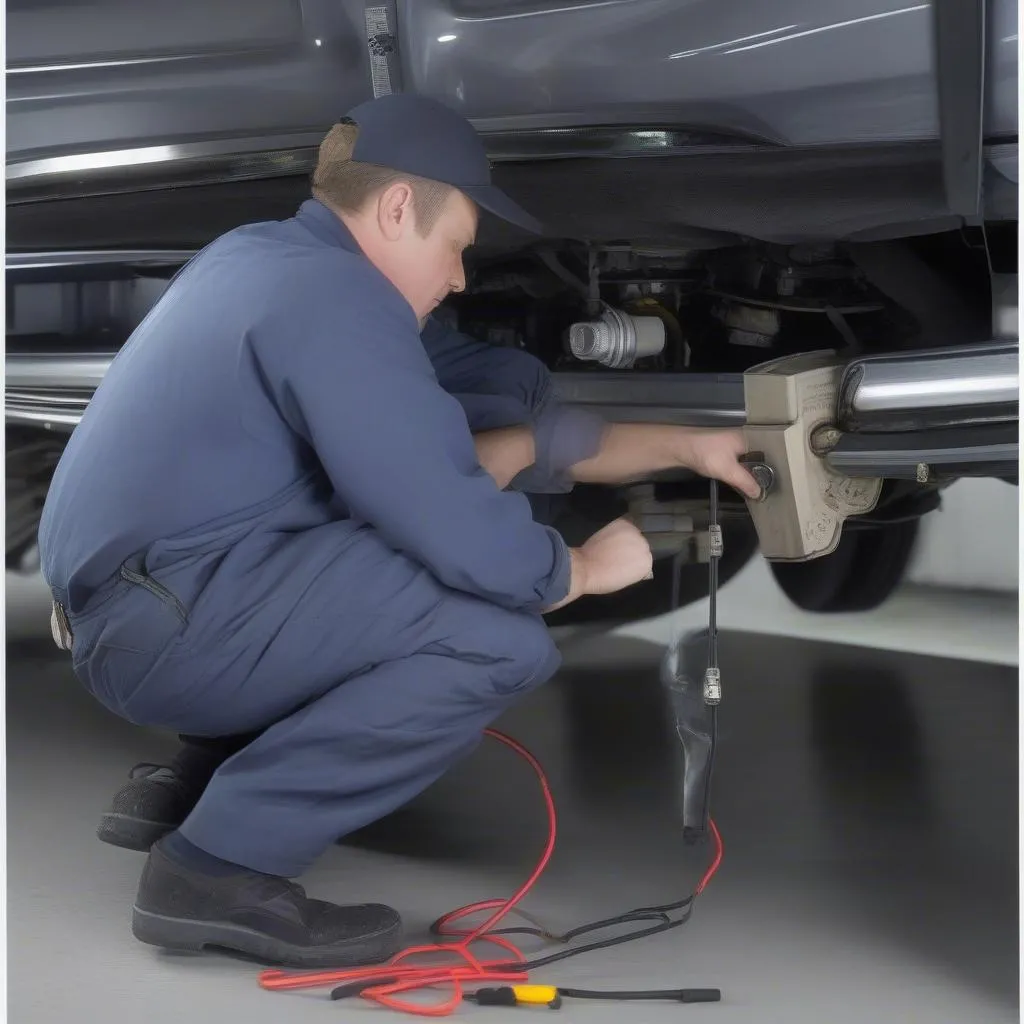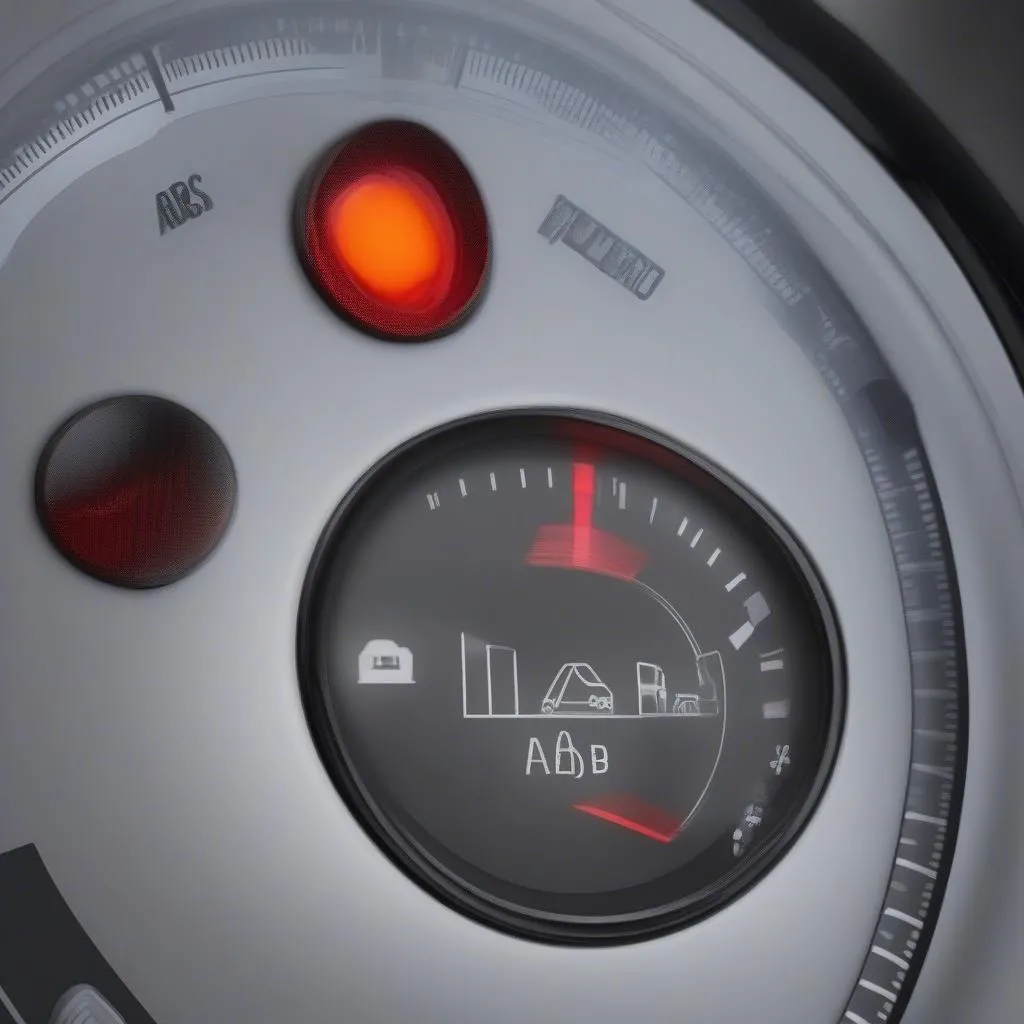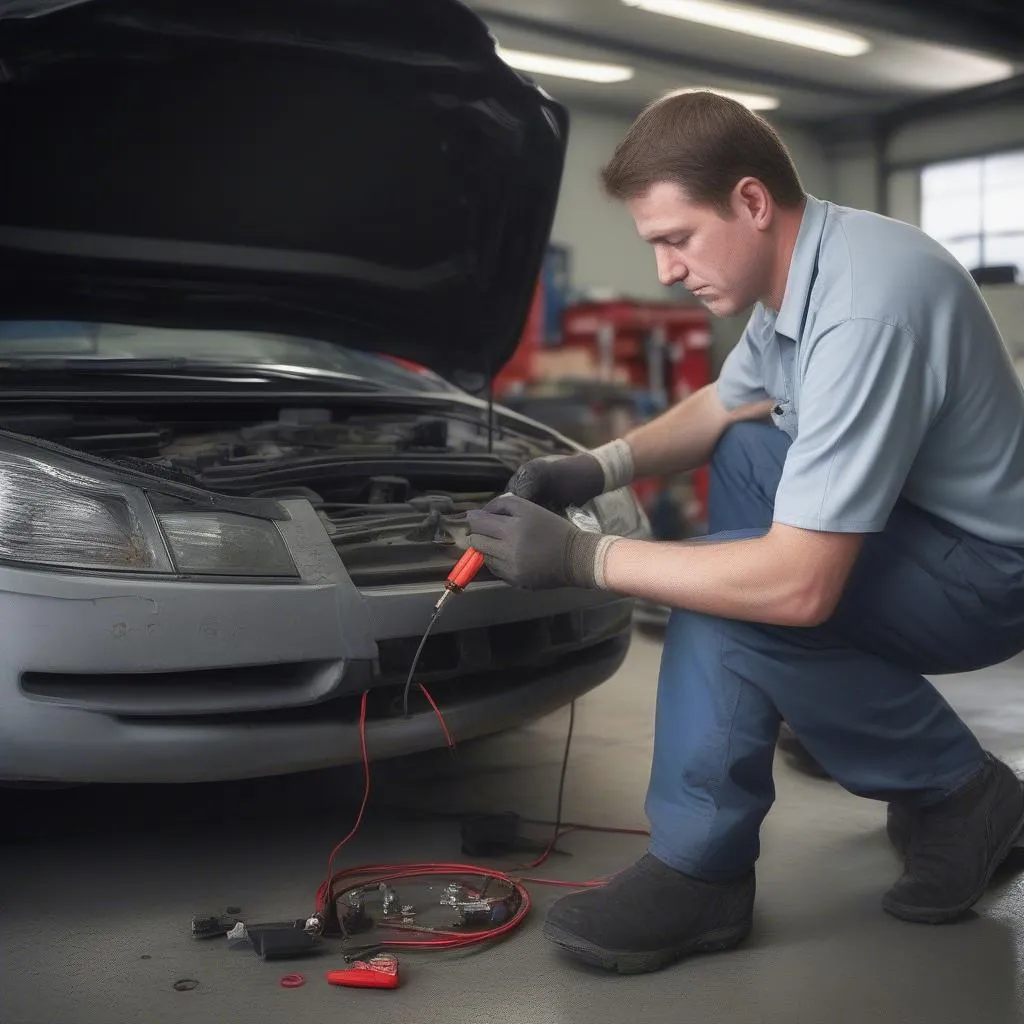Imagine this: You’re driving down a wet, slippery road when suddenly, you have to slam on your brakes. You feel the car skidding, but you’re able to regain control just in time. That feeling of relief you get is thanks to your car’s anti-lock braking system (ABS), and the crucial part of that system is the anti-lock brake sensor.
Understanding the Importance of Anti-Lock Brake Sensors
The anti-lock brake sensor is a vital component in your vehicle’s ABS system, working silently behind the scenes to keep you safe. It’s like a detective, constantly monitoring the speed of each wheel and sending information to the ABS control unit. This information is crucial for determining when to apply and release the brakes, preventing the wheels from locking up and causing a skid.
How Does an Anti-Lock Brake Sensor Work?
The anti-lock brake sensor is typically mounted on the wheel hub, using a magnetic or optical sensor to detect the wheel speed. Each sensor sends a signal to the ABS control unit, which analyzes the data and determines the optimal braking force for each wheel.
Why Are Anti-Lock Brake Sensors So Important?
Here are some key reasons why anti-lock brake sensors are essential:
- Preventing Skids: When brakes lock up, wheels stop rotating, and you lose control of the vehicle. Anti-lock brake sensors prevent this by constantly adjusting the brake pressure, allowing the wheels to continue turning even during hard braking.
- Enhanced Vehicle Control: With the wheels rolling, you can steer more effectively, avoiding a potential crash.
- Reduced Stopping Distance: Anti-lock brakes can actually shorten your stopping distance in some scenarios, as the system prevents the wheels from locking up and allows for more efficient braking.
Common Issues with Anti-Lock Brake Sensors
Like any other car part, anti-lock brake sensors can experience issues. Here are some common problems:
- Damaged or Worn-out Sensors: The sensors are usually exposed to harsh conditions, such as dirt, water, and road debris, which can cause damage.
- Electrical Problems: Loose connections or faulty wiring can disrupt the signal transmission from the sensor.
- ABS Light on the Dashboard: A lit ABS warning light is often a sign of a problem with the sensors or ABS system.
Troubleshooting Anti-Lock Brake Sensor Issues
Here are some steps to troubleshoot potential anti-lock brake sensor issues:
- Check the ABS Warning Light: If the ABS warning light is on, it indicates a malfunction in the system.
- Inspect the Sensors: Examine the sensors for any physical damage, such as cracks, broken wires, or corrosion.
- Scan for Diagnostic Codes: Use a scan tool like the Dealer Scanner For European Cars to retrieve any error codes related to the ABS system. This can help pinpoint the specific problem.
- Professional Assistance: If you’re unable to identify the issue, it’s best to take your vehicle to a qualified mechanic for diagnosis and repair.
Frequently Asked Questions
Q: What are the signs of a faulty anti-lock brake sensor?
A: The most common sign is the ABS warning light on the dashboard. Other signs include a pulsating brake pedal, difficulty stopping in a straight line, and a grinding or clicking noise from the brakes.
Q: Can I replace an anti-lock brake sensor myself?
A: While it is possible to replace a sensor yourself, it is generally recommended to have it done by a qualified mechanic. They have the tools and expertise to ensure the sensor is installed correctly and the system is properly bled.
Q: How often should I have my anti-lock brake sensors inspected?
A: It is a good idea to have your ABS system inspected as part of your regular vehicle maintenance schedule, typically every 30,000 to 50,000 miles.
Q: How much does it cost to replace an anti-lock brake sensor?
A: The cost of replacing an anti-lock brake sensor varies depending on the make and model of your vehicle, as well as the labor costs in your area.
Q: Do anti-lock brake sensors work on all vehicles?
A: Anti-lock brake systems are now standard equipment on most new vehicles, however, some older cars may not have this technology.
Protecting Your Investment
Investing in a well-maintained anti-lock brake system is essential for your safety and that of others on the road. Make sure to address any warning lights and have your ABS system inspected regularly. If you have any questions or concerns about your anti-lock brake sensors, consult a qualified mechanic for professional assistance.
 Anti-lock Brake Sensor Inspection
Anti-lock Brake Sensor Inspection
 ABS Warning Light
ABS Warning Light
 ABS System Repair
ABS System Repair
For expert assistance with diagnostics tools and any other questions related to car maintenance, contact our team at +84767531508. We’re available 24/7 to help keep your vehicle running smoothly.
Do you have any further questions about anti-lock brake sensors? Leave a comment below and our team will be happy to help!
Check out these other helpful articles: